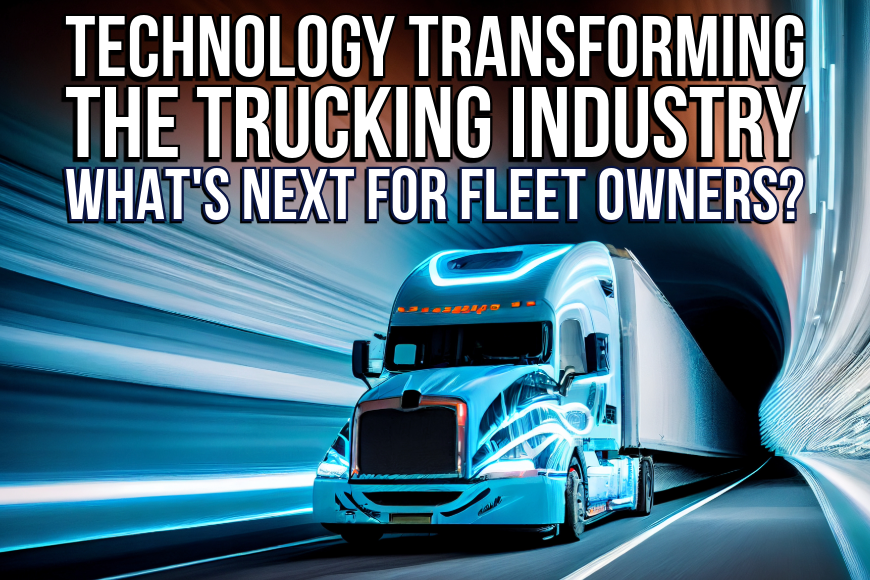- September 19, 2024
- By Tess
- In technology, trucking industry
- Tags technology, trucking indsutry
- 662
- 0

The trucking industry has witnessed significant technological transformations over the past decade, reshaping how fleet owners manage operations, enhance efficiency, and improve safety. As we look towards the future, several emerging technologies are poised to further revolutionize this sector. This article explores these advancements and offers insights into what fleet owners can expect in the coming years.
Telematics systems have become increasingly sophisticated, providing fleet managers with real-time data on vehicle location, fuel usage, driver behavior, and more. This technology not only enhances route optimization but also helps in maintaining compliance with regulations and reducing operational costs.
Advanced telematics now includes predictive maintenance capabilities, alerting fleet operators about potential vehicle issues before they occur. This proactive approach minimizes downtime, extends vehicle lifespan, and significantly reduces unexpected repair costs.
Autonomous truck technology is rapidly advancing, with several pilot programs already in operation across the United States and Europe. These vehicles promise to transform the logistics landscape by improving safety and efficiency while addressing the long-standing issue of driver shortages.
However, the integration of fully autonomous trucks into existing fleets poses significant challenges, including regulatory hurdles, cybersecurity risks, and the need for substantial infrastructure investments. Fleet owners must stay informed about these developments to strategically plan for integration.
Electrification is gaining momentum in the trucking industry as companies seek to reduce carbon emissions and comply with environmental regulations. Electric trucks offer the advantages of lower operating costs, reduced maintenance requirements, and access to increasingly stringent urban low-emissions zones.
For widespread adoption, significant enhancements in charging infrastructure are necessary. Fleet owners need to consider the logistics of charging stations, especially for long-haul routes, and the impact of charging times on operations.
Safety remains a top priority in fleet management. Modern trucks are being equipped with advanced driver-assistance systems (ADAS), such as automatic braking, lane-keeping assist, and adaptive cruise control, which significantly reduce the risk of accidents.
These technologies not only protect drivers and cargo, but also have the potential to lower insurance premiums by reducing the likelihood of costly accidents and liability claims.
Connectivity is set to transform how fleet operators manage their vehicles. With developments in Internet of Things (IoT) technologies, trucks are becoming part of a connected ecosystem that shares data between vehicles, infrastructure, and management systems, enabling more efficient fleet operations.
Fleet owners should continuously monitor technological trends and regulatory changes to remain competitive. Investing in staff training and upgrading systems to accommodate new technologies will be crucial for adapting to the evolving landscape.
Collaborating with technology providers and participating in pilot projects can provide early insights into the benefits and challenges of new technologies, allowing for better strategic planning and investment decisions.
The future of truck technology offers exciting opportunities for fleet owners to enhance operational efficiency, safety, and sustainability. By staying informed and proactive, fleet owners can not only anticipate these changes but also leverage them to gain a competitive edge in the evolving trucking industry.





